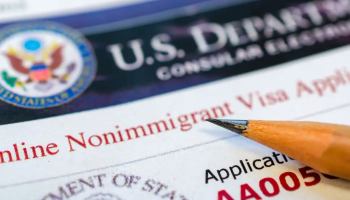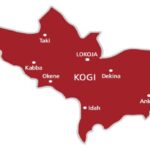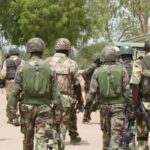One candidate in last year’s elections in Kogi Natasha Akpoti, has welcomed the US visa ban on individuals believed to have rigged the 2019 voting in Kogi and Bayelsa states.
Akpoti, of the Social Democratic Party (SDP) said the ban, announced by the US Department of State on Monday would send a strong signal to those who want to undermine the democratic process in the country.
The ban also extends to individuals in Edo and Ondo, where elections are to be held in September and October, citing the behaviours in the runup to the election.

“I was one of the candidates in that election that was closely monitored by the International Community because I am a woman, because of the interest of the international community to ensure greater female participation in positions of authority,” said Akpoti.
“This action goes a long way to validate all claims my party and I made at the courts with regards to the gross irregularities of electoral processes amidst violence to install Yahaya Bello as governor of Kogi state.
“To think the Supreme Court dismissed my petition as being flimsy and lacked evidence whereas all INEC result sheets tendered as evidence had no SDP on them; shows the depth of corruption and dishonesty of the Nigerian judicial system”, she said.
According to her, every act of violence, political injustice and electoral malpractices that took place were all noted down.
“It is a shame that the Nigeria judiciary up to the Supreme Court upheld that election against all visible proven odds.
“Nigeria should realise that as a country, we do not live in isolation. Nigeria does not exist in Isolation, it exists among comity of nations hence, whatever we do good or bad is on record for everyone to watch.”
UK, EU urged to introduce visa bans
In the wake of the ban, the UK and EU have been urged to introduce similar restrictions
A former deputy publicity secretary of the ruling All Progressive Congress, Timi Frank, said the ban would help checkmate individuals who have operated with impunity at the expense of the generality of the Nigerian populace.
“This Visa Restrictions should also be extended to recalcitrant Judges, INEC officials, Security agencies and political party chieftains who aided and abetted the rigging of the Kogi and Bayelsa States governorship elections while those who perpetuate similar crimes in the Edo and Ondo polls should not be spared,” he said.
The United Kingdom, on Tuesday, said it would take action against individuals who foment trouble during the coming governorship elections in Edo and Ondo states.

The British High Commission in Nigeria, in a statement posted on its Twitter handle, said the sanction could include visa ban, restrictions on access to UK-based assets or prosecution under international law.
The statement reads in part: “The UK takes a strong stand against election-related violence and just as we did in the general election in 2019, will continue to take action against individuals we identify as being responsible for violence during the elections.
“This could include restrictions on their eligibility to travel to the UK, restrictions on access to UK-based assets or prosecution under international law.
“The UK will continue to provide support and engagement as we move towards these elections.”
Political will
Meanwhile, the Civil Society Legislative Advocacy Centre (CISLAC) has also joined the call for the other countries to emulate the US ban.
CISLAC executive director Auwal Musa Rafsanjani said on Tuesday that the US stance validates “years of persistent demands by civil society, human rights and anti-corruption activists for stringent international measures to discourage electoral violence that paves way for electoral fraud and undermines democratic principles in Nigeria.”
“We are not unaware of lack of political will at all levels of government to address electoral violence, in spite of the existence of laws and reports from several panels and commissions, with recommendations,” Rafsanjani said.
“We therefore, call on British and other governments to follow suit in the imposition of visa restrictions to discourage electoral offenders from using their respective countries as alternatives in harbouring electoral crimes.”

 Join Daily Trust WhatsApp Community For Quick Access To News and Happenings Around You.
Join Daily Trust WhatsApp Community For Quick Access To News and Happenings Around You.

